In the West we are protected from our waste. Relieved of all responsibility. Once we buy a packaged product, that used packet goes into a bin, and taken away. What happens after that is beyond our control and care. As long as it doesn’t end up as a smelly mess near where we live or visit, we remain happy. By now the majority of Western Europe has adopted a lot of recycling schemes to remove the societal guilt of buying packaged products. However, I have heard of some bulk buy super markets, where a shopper can bring their own containers to fill up on loose produce. But the concept doesn’t seem to be wide spread. Maybe some see it as a step backwards, and a reduction in freshness?
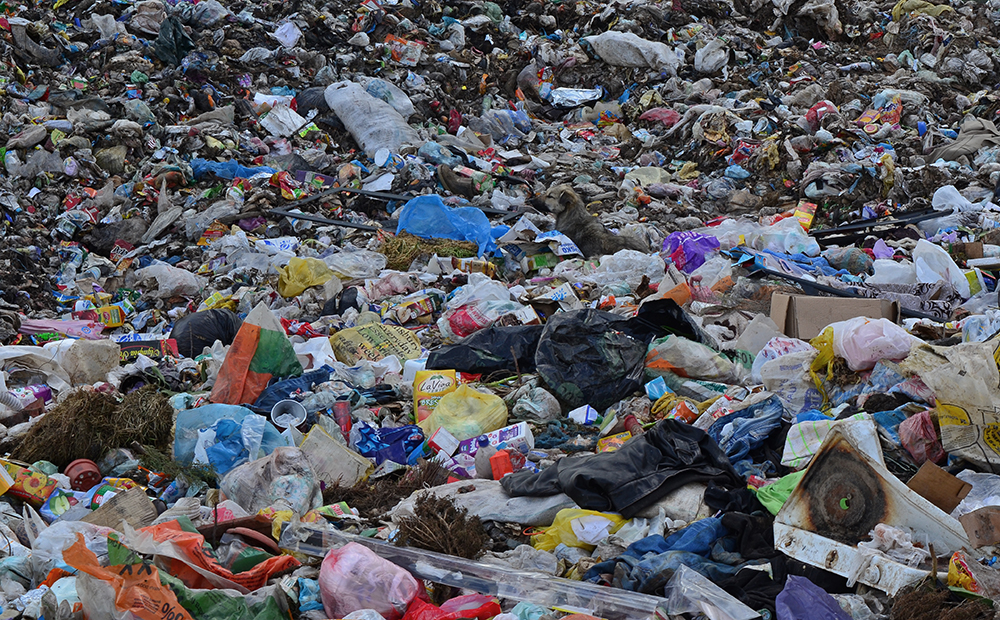
As our population grows so do our plastics. We have just arrived in Ladakh in north West India. Cycling along the road I notice a few signs now and again. ‘Polythene and Plastic free zone’ these are mainly situated in small villages. Most likely organized by the local residents fed up with passing tourists tossing their rubbish from a car window. I know because I see it. We came here four years back. By bus. We were moving at a speed like all the other traffic on the road, getting little indication of whose in front and whose behind. The countless signs saying ‘keep Ladahk clean the sacred roof of the world’ made sense. Moving at this speed gave me the picture that the place is untouched and we are mere observers of this pristine nature. But once we mounted our bicycles the pace dropped. Suddenly we were exposed to the countless trucks that over take, with their black smoke bellowing from their exhausts.
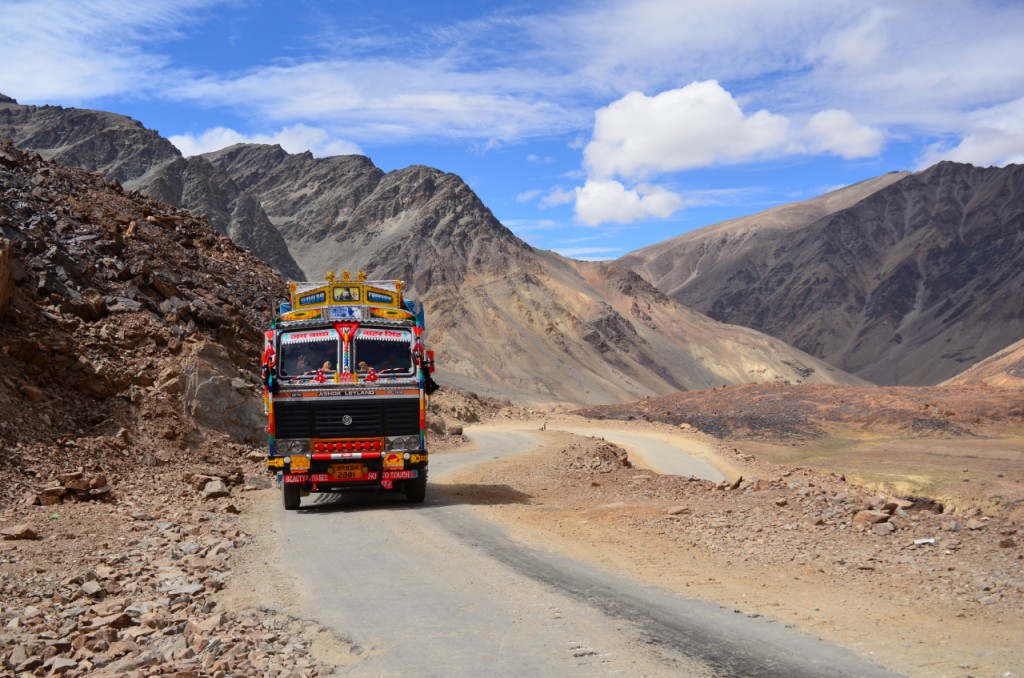
The Gata Loops is an iconic part of the road between the low lands of India and Ladakh on the Manali – Leh highway. Its a series of 21 switch backs leading high up the side of the mountain. Perched way up Mayu and I stopped for a break to look below on what we had achieved. Staring down it gave us a unique view. We could see all the traffic zig zagging its way up. Mainly it was an army of trucks making their way towards us. Ladakh is developing. But this scene suddenly made me wonder who is Ladakh developing for? Tourism is definitely on the increase. And it suddenly dawned on me that a lot of these trucks were serving the needs of these growing number of visitors. Most of whom come by bus or car. Bringing little or no supplies of their own.
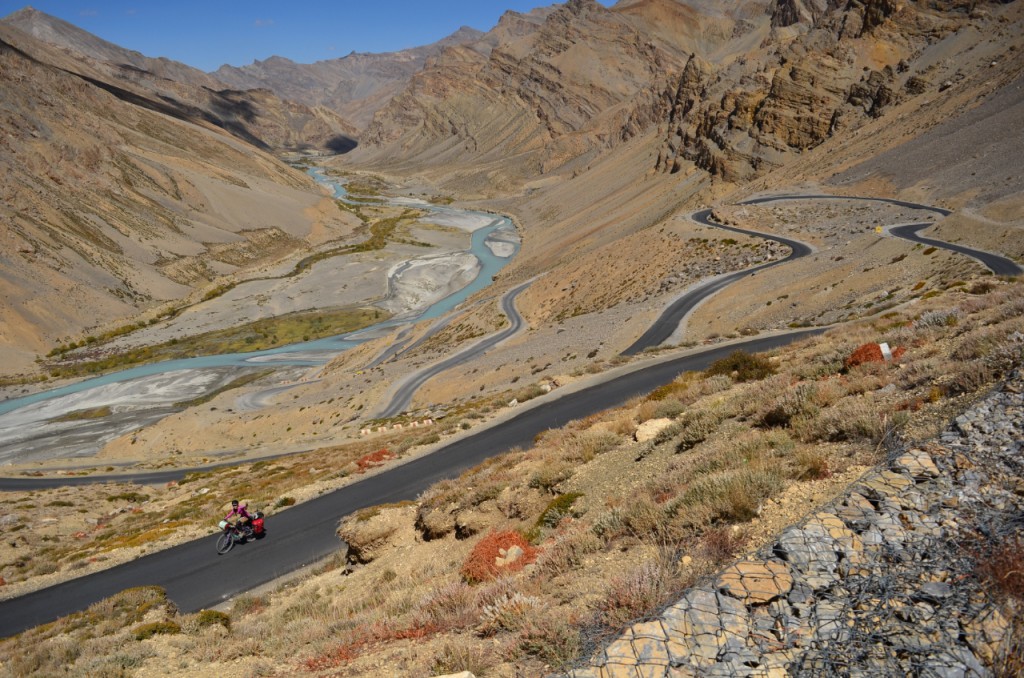
Travelling in other parts of the world, Mayu and I have become quite comfortable with being self sufficient. Filtering our water, cooking the food we carry and setting up our home when it feels right. The feeling of being alone in a landscape certainly beats the comfort of a bed. However this approach has its down sides. And sleeping every night in a tent almost by habit can leave us in some undesirable places as well. After having a series of great camp spots we arrived in a settlement called Pang. We knew we had to stay here because we would have to fill up and carry water for the next day. The settlement was a series of tents and mud brick buildings, high up on the banks of a river. Down at the waters edge we could pitch our tent. It was hidden and would block any noise from the road. But this camping spot was Pang behind the scenes. Hidden from the tourists view. What should have been a pristine camp spot next to a beautiful crystal clear stream. Was now a dumping ground for this tourist and trucker stop over of Pang. We were surrounded by dog shit, horse shit, sheep shit and worst of all human shit. We even had to signal to one of the locals in the morning it wasn’t cool to take a shit in front of our tent. Embarrassed he pulled up his trousers and found another spot up stream. Along with all this shit were plastic water bottles and various other bits of plastic dumped here by the locals. Not wanting to add to the problem. We filtered the water out of the river, like we do each morning. And here in Pang, surrounded by shit there was probably a good chance something grim was lingering in the water, but after 8 mouths of using our Grayl water purifier. We trust it. And so far we are free of any virus or parasite.
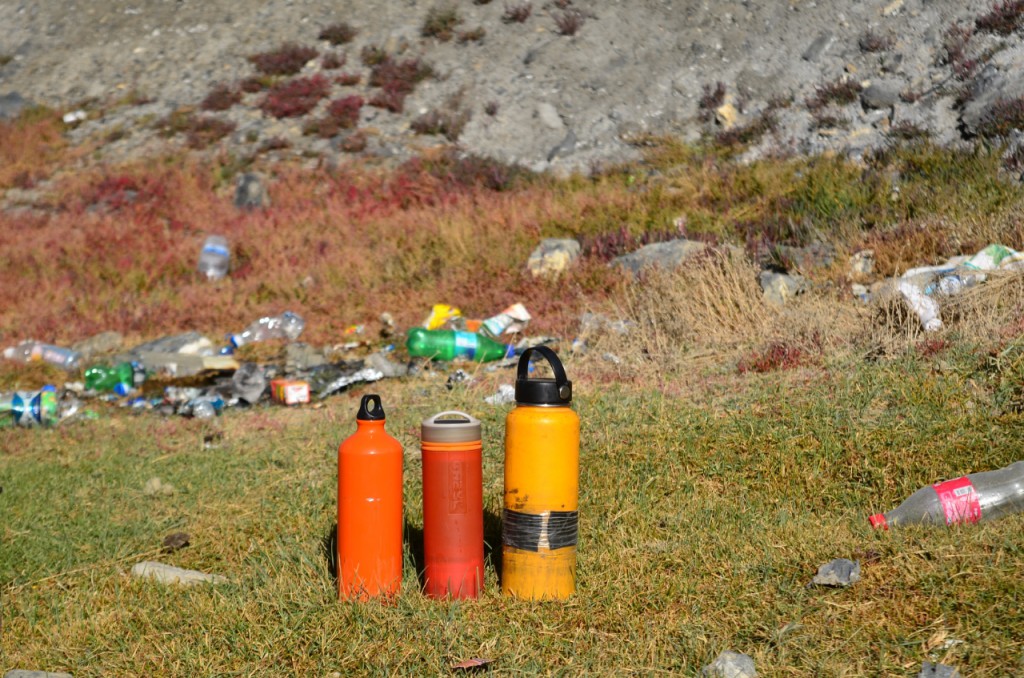
In Ladakh and many other places, I see hardly any locals drinking bottled water. They rely on local water sources and deal with the consequences of drinking it ‘raw’. So that leaves us the tourist to take a large portion of responsibility for the plastic bottle waste that ends up in the once beautiful grassy banks of the river in Pang. Back in what used to be my family home in London, my parents had installed a water filter. It was a third leaver on our kitchen tap. So like the locals of Ladakh and much of the world. We would not rely on bottled water. Even though our water was safe to drink out of the tap, we still filtered it. So why is it that a large portion of us rely on bottled water when we travel?
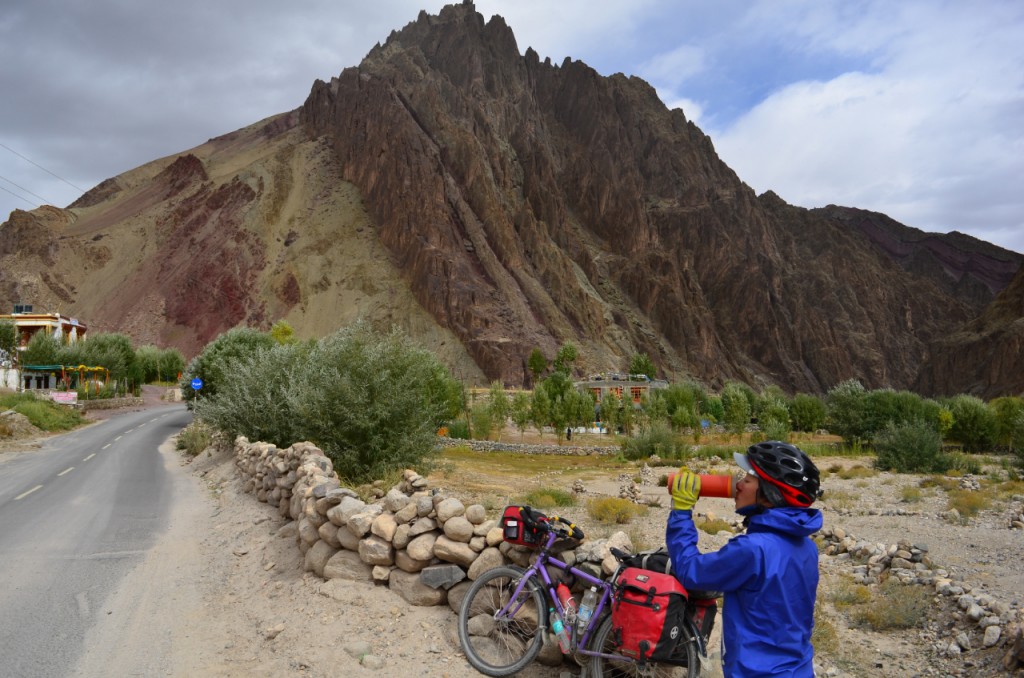
Thinking back to when I first bought a water filter, I wanted to filter and drink the water from the bird bath in the garden. I thought that will have a high probability of bird shit and most likely something funky floating around in there. But my parents urged me not to. My nerves kicked in. I didn’t have enough faith in this device that it could really clean the water. However after years of travelling with filters I can honestly say I trust them. Even more so than some bottled water I see in developing countries. So maybe its a trust issue? Or is it the cost? The upfront cost of buying a Grayl Ultralight could seem expensive. But when you divide it up on price per litre it works out to be 40p per litre and then 16p when you buy a replacement cartridge. For something that safely removes viruses, bacteria and parasites. Whilst keeping our camp spots clean and free of plastic bottles. I can only see the positives.
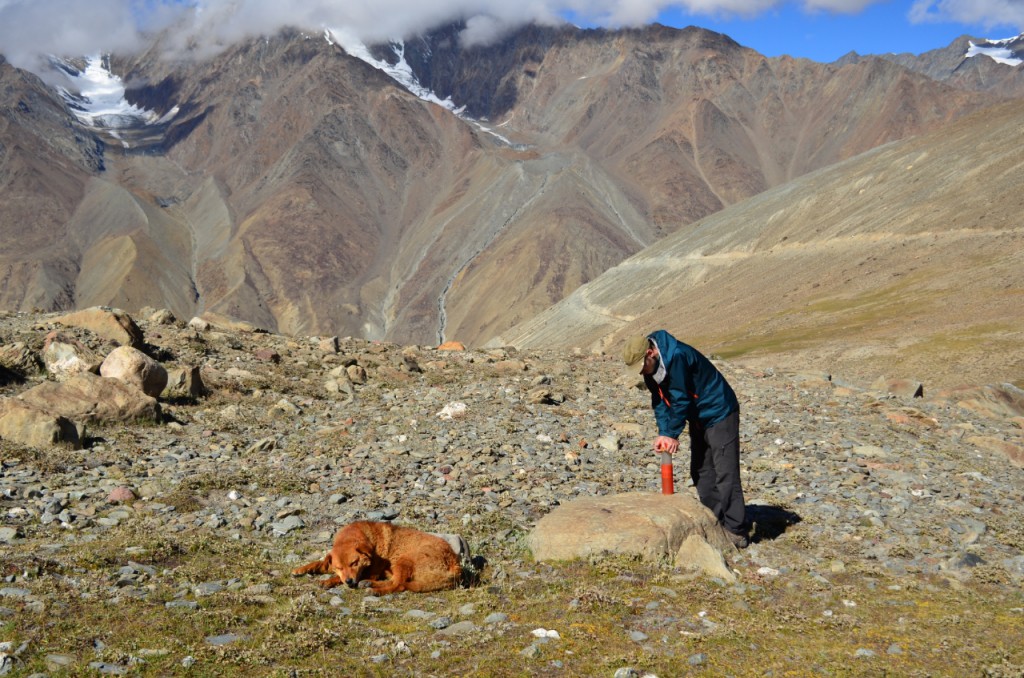
The last two books I’ve read have been on the subject of development. The first by Helen Norberg-Hodge – Ancient Futures. Is a story of her life and her connection to Ladakh. She was the first foreigner to come to Ladakh when it opened to the outside world in the 1970s and learn their language. Through her deep connection with the people here she started to see how it was changing as the developing world began to grip this ancient place. The second book by Nsekuye Bizimana – White Paradise Hell for Africa? Is the story of a young Rwandan boy that gets a scholarship to go to Germany also in the 1970s to become a vet. He talks of his experiences in Western europe and dispels some of the myths about the promise land that so many of his country’s people believe. Both books conclude with the right approach, of how these nations should move into the future. Instead of blindly following the west. Helen Norberg-Hodge calls it counter development. Both Authors agree that development should happen locally. Just like the developing world leap frogged over land line telephones straight to mobiles. All other modern conveniences such as power, sanitation and water should all be dealt with on the ground. Using sustainable techniques. And running with the theme of this post. Filtering water at source!
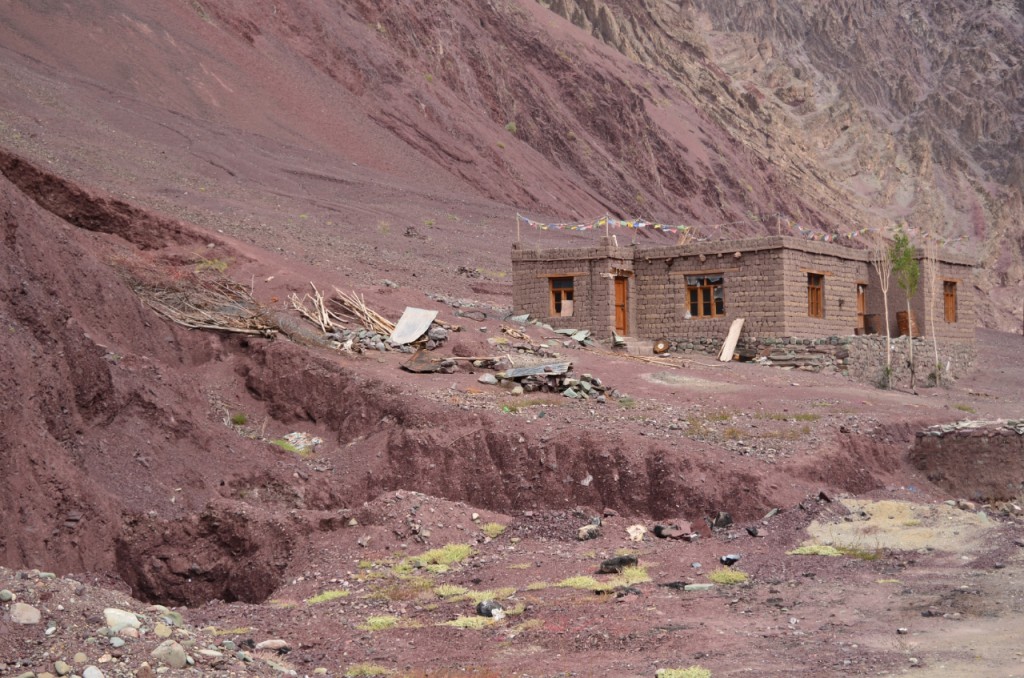
There is some light within the darkness of this plastic bottle issue, there are a number of places around Leh, the capital of Ladakh. Where we can fill our bottles for 10p a litre. In the guest house we are staying they have a water filter where we can re fill for free. However this concept is not seen often enough and bottled water still rains king. In the past I fancied myself as a bit of an adventurer, and I needed a personal water filter for purification in remote places where bottled water could not be found. However now I understand that the role of a personal water purifier, something you can trust that filters all things. Viruses, bacteria and parasites. Needs to be employed by tourists where bottled water serves us and not the locals.
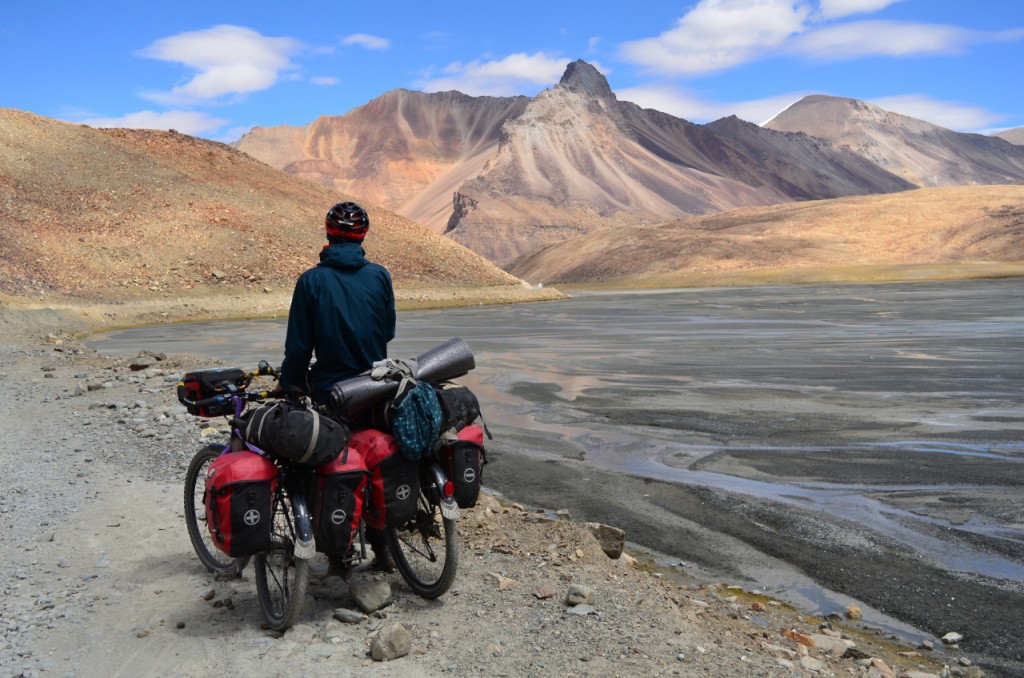
Water treatment plants are expensive, and recycling is just another pipe dream in this part of the world. Id like to see more visitors acting on the idea of counter development and pushing for more solutions at the source of the problem.
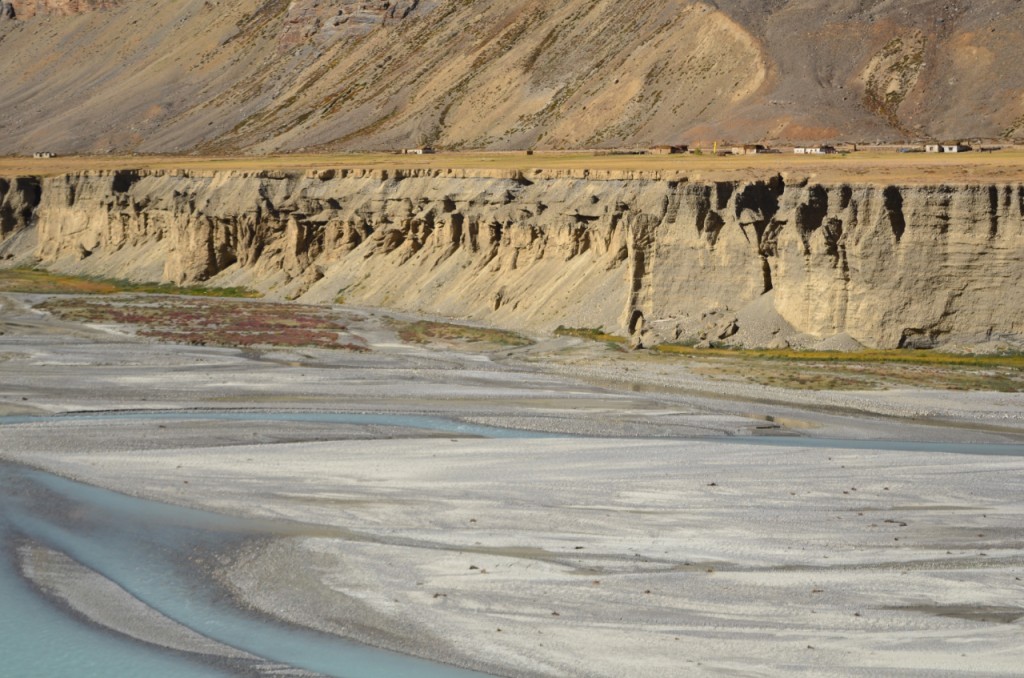


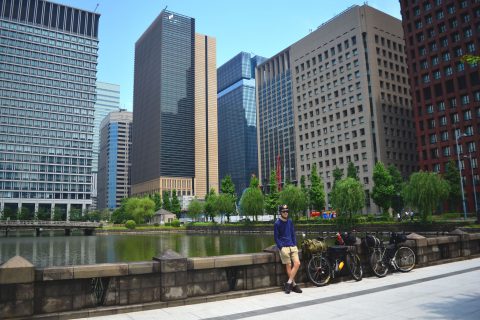
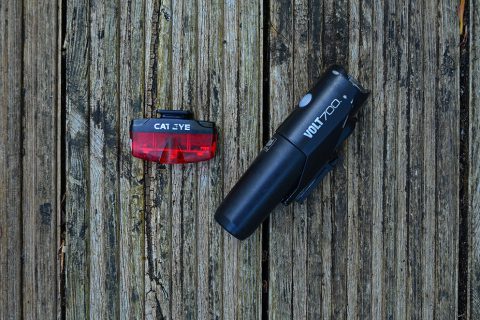
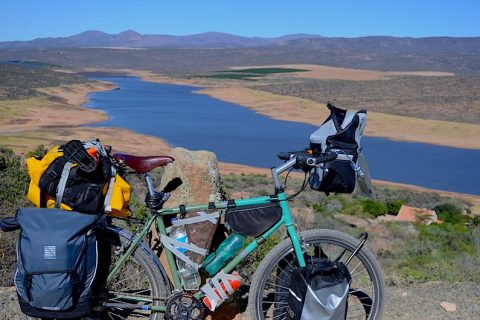
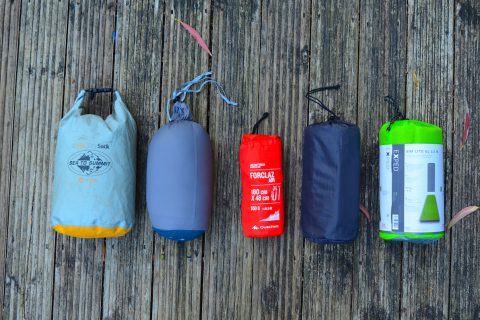
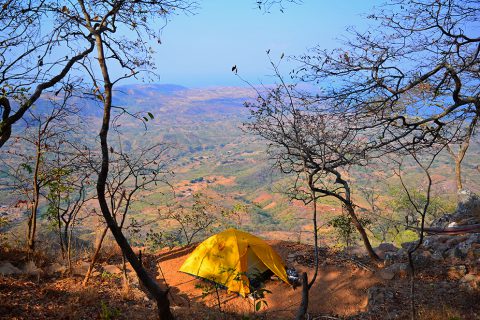
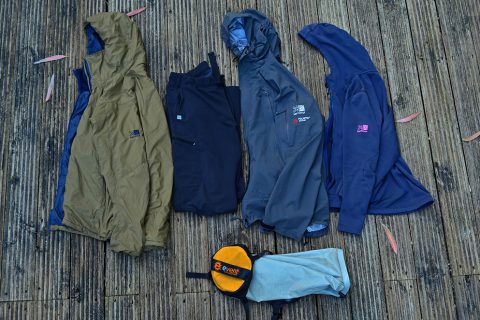
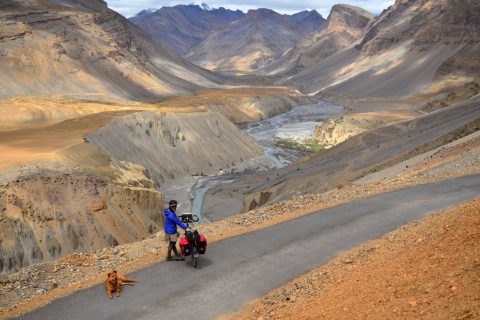
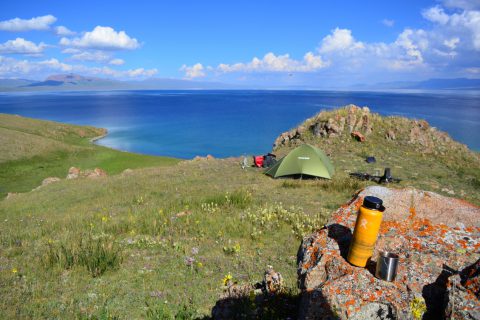
Well done, Elliot, a great piece of writing and much food for thought. Of course we filter water at home but you are quite right we buy bottled water when on holiday, so our bottled water consumption is quite small. However, I do see people buying in bulk, so despite our tap water being safe to drink, people just don’t like the chlorinated taste. Its going to take a long time……….
Keep safe. Lots of love to you and Mayu xxxx
Dear Elliot and Mayu,
This morning I read your recent blog which was a sad comment on the mindless trashing of their environment, by some people. I confess to being angry about such despicable behaviour and so to refresh my mind i opened up Instagram to look at your past breathtaking pictures. I spent nearly an hour gazing on these fantastic scenes and thinking what a wonderful exquisite world we live in. I am blown away by the experiences you two must have had and admit to a certain envy. I know you realize how blessed you are to be present in these strange and inspiring places and to meet wonderful support and friendship.
I have found these two quotes to share with you:
“Gratitude unlocks the fullness of life. It turns what we have into enough, and more. It turns denial into acceptance, chaos to order, confusion to clarity. It can turn a meal into a feast, a house into a home, a stranger into a friend. Gratitude makes sense of our past, brings peace for today, and creates a vision for tomorrow.” ~ Melody Beattie
You know the things that money can’t buy… true love, companionship, wisdom, respect, integrity, and so on. They’re values. Happiness is fulfilling your heartfelt desires, being fully alive, true to yourself. But not in isolation… Loving service to our fellows connects us and life becomes meaningful and fulfilling. When societies and governments are not at the service of all people equally, then arrogance and exploitation risk snuffing out true human development and fulfilment. Only by loving and serving others, even with the simplest of gestures, will we attain a genuine sense of happiness and hope.
Much love to you both – Grandad